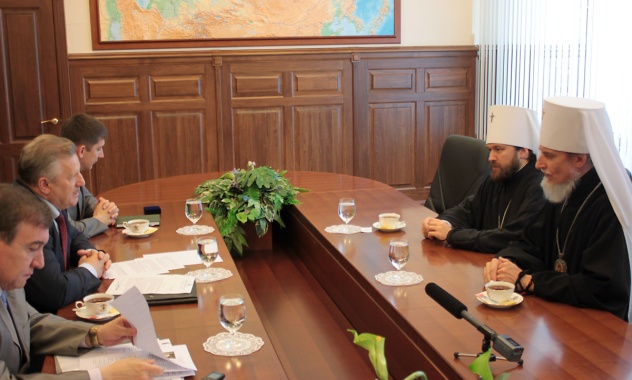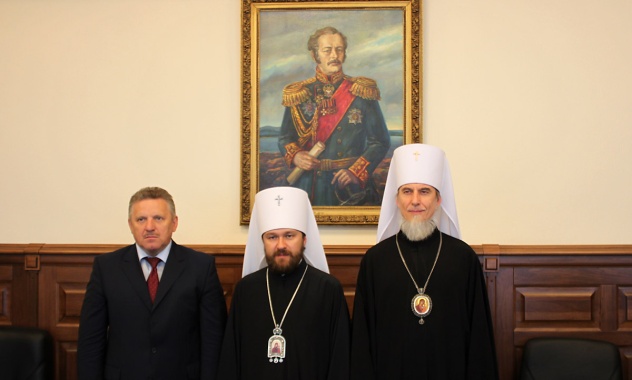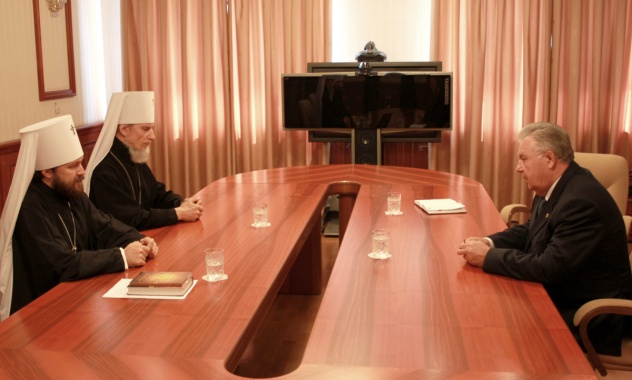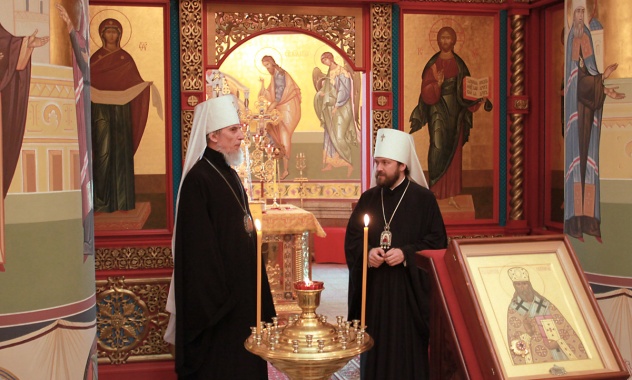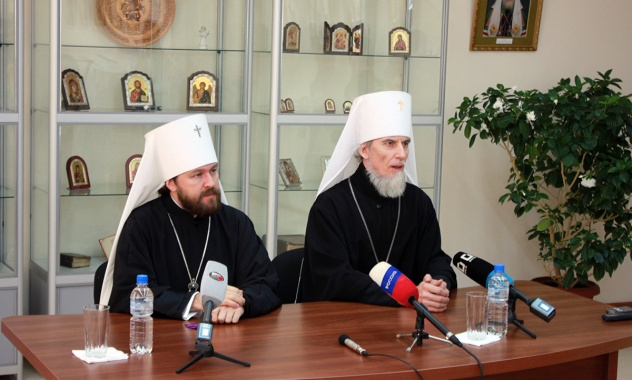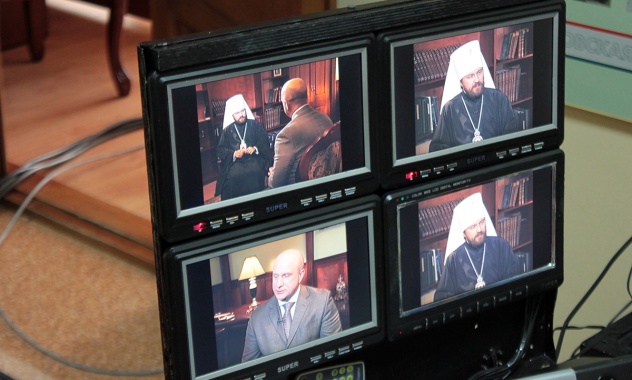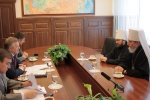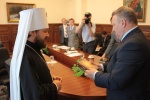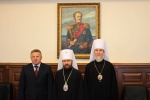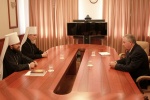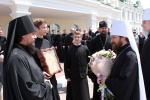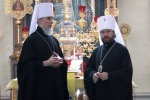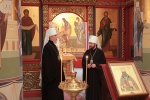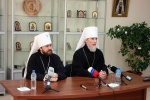Metropolitan Hilarion’s working trip to Khabarovsk
On June 18, 2012, Metropolitan Hilarion of Volokolamsk, head of the Moscow Patriarchate’s department for external church relations, visited Khabarovsk on his way to China.
At the Khabarovsk airport the DECR chairman and his party were met by Metropolitan Ignaty of Khabarovsk and Priamurye, and staff of the Priamurye Metropolia.
After a brief visit to the Khabarovsk Seminary, where Metropolitan Hilarion was welcomed by the first-pro-rector Bishop Efrem of Bikin, Metropolitan Hilarion met with the Khabarovsk Governor V. Shport.
The head of the region warmly welcomed his guest and told him about the experience of cooperation between the regional administration and the Khabarovsk Metropolia in the fields of social work, information and development of international contacts. Mr. Shport stressed how important the establishment of the Khabarovsk Metropolia was to all people in the Far East.
The governor also recalled with warmth the visit to Khabarovsk by His Holiness Patriarch Alexy II who was accompanied by Metropolitan Kirill of Smolensk and Kaliningrad (now Patriarch of Moscow and All Russia). He noted the great role of that visit for the life of the region and the special participation of Metropolitan Kirill in the church life of the city, especially in defining the place for the construction of the Cathedral of the Transfiguration. The governor conveyed an official invitation for Patriarch Kirill to come to the Khabarovsk region for a patriarchal visit.
Metropolitan Hilarion, on his part, thanked the governor for the opportunity to meet and stressed that the Khabarovsk Region was a strategic region for Russia and the whole Far East, citing the words of Patriarch Kirill who said that ‘the Far East is not a fringe but the beginning of Russia because the sun rises here’.
Khabarovsk and its seminary, which is rightly considered one of the best in Russia, can become a place for the religious development of the region, a meeting place for cultures and peoples, and one of these peoples is China, Russia’s largest neighbour, Metropolitan Hilarion said, adding that more and more Chinese come to the Khabarovsk region to stay or to live. This is why the task of developing the Orthodox mission among the Chinese diaspora in the region becomes an increasingly pressing task.
Later that day, Metropolitan Hilarion met with the Minister for the Development of the Far East and Presidential Envoy in the Far East Federal Region, V. Ishaev. They discussed a wide range of problems involved in the development of the region and the religious life in it.
During a short tour of the city, Metropolitan Hilarion accompanied by Metropolitan Ignaty visited the Cathedrals of the Dormition and the Transfiguration.
At the Khabarovsk Seminary, Metropolitan Hilarion was welcomed by Bishop Efrem, Bishop Aristarch of Nikolaev, as well as professors and students.
Addressing the students, Metropolitan Hilarion said in particular that the revival of the faith, which is visible in large cities, have not yet reached the Russian heartland, where there is still a vast field for Orthodox mission. ‘It is for the purpose of giving a new impulse for missionary work so that more attention could be given to people not yet embraced by the apostolic mission that new dioceses and new metropolises have been established throughout Russia’, he said.
‘The Far East is a special territory. It is the easternmost outpost of Russia on the border with another great state. It is necessary for you to be well aware of your neighbours, their culture and language. I have made a stop here on my way to China on the special purpose to hear about initiatives with regard to China made here.
‘At present, we are conducting a difficult dialogue about the normalization of the situation of the Chinese Autonomous Orthodox Church. In her history, there were periods of flourishing and decline. At present, much has been destroyed but something has survived. We are working with the Chinese leaders to have the non-acting churches acting and to have acting churches filled with words of prayer so that our compatriots and Chinese citizens could lead their religious life without obstacles’.
Metropolitan Hilarion gave to the seminary’s library a set of his books.
During the dinner that Metropolitan Ignaty gave in honour of Metropolitan Hilarion, the discussion concerned prospects for the development of the Khabarovsk Seminary and its participation in the work carried out by the Department for External Church Relations to normalize the situation of the Chinese Autonomous Orthodox Church.
After the dinner, Metropolitan Hilarion took part in a press conference for the regional mass media and gave an interview to the Khabarovsk branch of the All-Russia State Television and Radio Broadcasting Company.
DECR Communication Service







